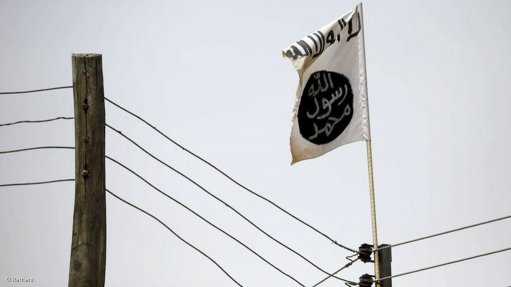
Terrorism remains the biggest risk for businesses globally, with some 254 terrorist incidents classified as greater than Severity Five having occurred between January and July alone, leaving hundreds dead and injured.
While South Africa had a low terrorism rating, the US had recently warned of a possible looming threat to the country, indicating that terrorism still remained within reach, said Control Risks senior consultant Rivaj Parbhu on Tuesday.
Globally, the top five risks were terrorism, the Syrian refugee crisis, the European Union (EU) instability, cybercrime and perspectives, compared with South Africa’s top five looming downgrades, which included social protests and unrest, corruption and white collar crime, cybercrime and perspectives.
A discussion at the Economic Outlook Updates and Mid-Year Review, held at the Gordon Institute of Business and Science, revealed that, despite the differing views of perceived threats, many of the global risks had far-reaching impacts.
A worldwide risk concerning businesses was the continued export – near and far – of instability from Syria and the Middle East, with some 11-million people displaced.
The conflict was continually and unpredictably changing trajectory, with the continuous flow of Syrian refugees destabilising countries, particularly in the EU, where strategic terrorist attacks exacerbated a series of “existential blows” in recent times, such as Brexit, the Greek debt crisis and the Crimea/Ukraine conflict.
Meanwhile, South Africa perceived its own continued social protests and unrest related to service delivery as a risk, along with corruption and white-collar crime, with perceptions of corruption remaining unacceptably high. Despite a robust anticorruption framework, the laws were inadequately enforced.
A common risk globally and in South Africa was cybercrime, with the African country being subject to the highest number of cyberattacks on the continent.
Key incidences between January and July included Anonymous Africa’s OPAfrica’s initiative that involved defacing the websites of public broadcaster SABC and government websites.
Further, South Africa had been targeted in a R250-million-plus ATM fraud scam in Japan earlier this year.
In the years to come, cybercrime and the theft of customer databases and personal details would continue to dominate; however, 2016 would see the emergence of increasing hardware compromise, industrial controls would be “in the crosshairs” and State espionage would surge, with no fewer than 45 States engaging in cyber snooping, he added.
Lastly, perspective and sentiment remained a risk, as positive development was often overlooked and “drowned out” by the cacophony of negative sentiment.
Parbhu asserted that, in South Africa, there was much to be positive about, including a robust judiciary, vibrant independent media, value in commodity stocks and its continued position as a gateway to the Africa rising story.